Judicial credibility hangs in balance
CB gears up to resume hearing on review petitions tomorrow
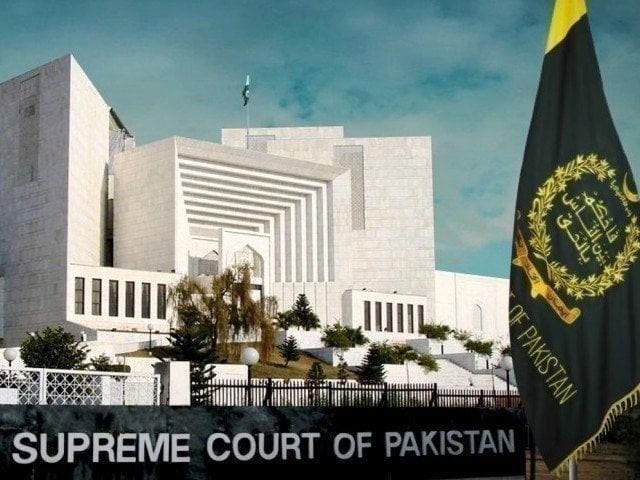
As the Supreme Court's Constitutional Bench (CB) gears up to resume hearing on review petitions against the majority verdict in the reserved seats case on Thursday, speculation is swirling about the direction of the decision and the political tremors it may unleash.
Experts believe the ruling will rest on how the court chooses to read the Constitution: either with a microscope or a magnifying glass.
Former additional attorney general Waqar Rana notes that the fate of the case hinges on two distinct interpretative approaches to the Constitution: a literal and pedantic reading, treating the Constitution as an ordinary statute or a liberal and organic interpretation that upholds foundational constitutional values.
"It is a test of the judiciary when judging the state (Paula Newberg) whether it follows and upholds the Constitution by approaching it with the latter rules of interpretation or it follows the former rules," Rana stated.
He added that from a historical perspective, the judiciary has been split into two camps: one aligned with the tradition of Justice Cornelius and the other with that of Justice Munir.
"Choices are simple. The Court either follows constitutional faith or continues with idolatry of necessity. In the ultimate analysis, the faith of people in the judicial system as an independent arbiter of justice and the rule of law is at stake."
The reserved seats case is pivotal in determining whether Pakistan Tehreek-e-Insaf (PTI) secures 23 additional National Assembly seats, which would significantly affect the power balance in the lower house and determine whether the ruling coalition secures a two-thirds majority.
To date, the judgment authored by Justice Syed Mansoor Ali Shah – and endorsed by seven other judges – has not been implemented by the Election Commission of Pakistan (ECP), despite being nearly a year old.
Observers note that four judicial opinions were rendered in the case. Among them is the second opinion, authored by Justice Jamal Khan Mandokhail and supported by then chief justice Qazi Faez Isa.
This view, widely referred to as the "Mandokhail Formula," allows PTI some representation in the National Assembly. Should this view be endorsed by a new majority, the ruling coalition could achieve a two-thirds majority, while PTI reclaims a parliamentary presence.
A senior lawyer commented that endorsement of Justice Mandokhail's view could offer a "win-win situation" for both the government and PTI: the ruling alliance gets its supermajority, and PTI regains entry into Parliament.
The third opinion was penned by Justice Aminuddin Khan, head of the CB, and Justice Naeem Akhtar Afghan. They dismissed the Sunni Ittehad Council's (SIC) petition, upholding both the Peshawar High Court and ECP decisions, which held that reserved seats could not be allocated to SIC.
Their opinion called for the redistribution of the 78 unallocated seats among all qualifying parties, especially the PML-N and PPP.
Justice Amin's role as the CB's presiding judge gives his position added weight, and notably, six new judges have joined the current bench. However, none of the six judges who were part of the original bench are included in the review proceedings.
Even two judges who had earlier endorsed the majority order are not publicly supporting the July 12 judgement in court.
One judge, during recent hearings, even used the term "biased" to describe the original majority decisionan unprecedented move that has added further uncertainty to the case's outcome.
Meanwhile, debate is growing over whether the new majority will side with Justice Amin's stance or adopt the Mandokhail formula.
Legal insiders note that although two judges – Justice Ayesha Malik and Justice Aqeel Ahmad Abbasi – have already dismissed the review petitions and their votes will count in the final decision, many believe the July 12 majority judgement may not survive the ongoing review.
Some pro-government legal voices claim that the 27th Constitutional Amendment is under discussion, allegedly aiming to restructure judicial authority over the long term. This has reignited debate on whether judicial independence, a core feature of the Constitution, is being preserved or compromised.
Notably, petitions challenging the 26th Constitutional Amendment have yet to be scheduled by the CB, despite repeated calls from senior SC judges.
Observers argue that the judges who benefited from the 26th Amendment appear less concerned about judicial independence than those who were sidelined by it.
Though the government appears confident about the outcome, the bench is reportedly eager to conclude the review proceedings swiftly. PTI's counsel, Hamid Khan, has requested adjournment until August 5, citing his general adjournment, but sources suggest the court is unlikely to delay proceedings, especially with judges' summer vacations already in effect.


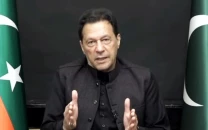
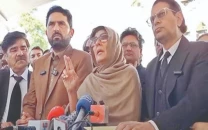

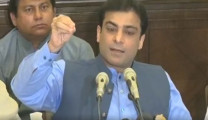

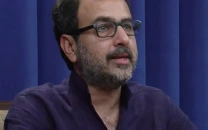

















COMMENTS (1)
Comments are moderated and generally will be posted if they are on-topic and not abusive.
For more information, please see our Comments FAQ